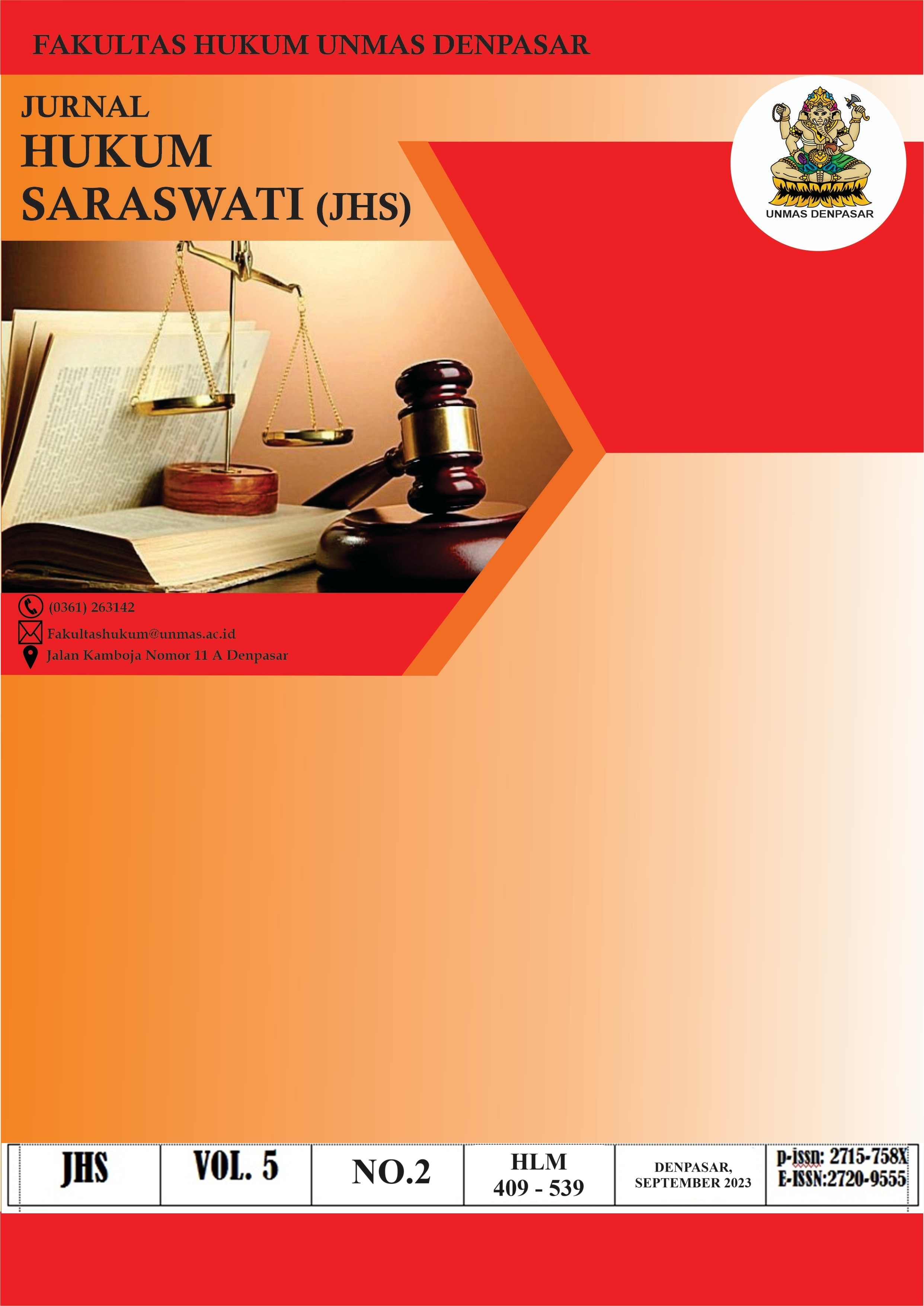PERBUATAN MELAWAN HUKUM BANK DALAM LELANG HARTA WARISAN SEBAGAI JAMINAN DENGAN HAK TANGGUNGAN PERSPEKTIF KEADILAN
Keywords:
LELANG HARTA WARISAN, JAMINAN, HAK TANGGUNGANAbstract
The role of banks is very important in economic development in Indonesia, especially for people who have business skills but are hampered by a lack of capital, so they need financial assistance to run their business smoothly. In accordance with the Law of the Republic of Indonesia No: 10 of 1998 concerning Banking, it is stated that when providing credit to the public, the 5 C elements must be taken into account, namely Capacity, Collateral, Character, Capital and Economic Conditions. To guarantee the safety of returning credit to the bank, the debtor is required to provide collateral to the bank, so that if the debtor is unable to repay the debt, the collateral will be sold/auctioned. In carrying out the auction of collateral objects, disputes often arise between the bank and the debtor, especially since the debtor who signed the credit agreement has died and the inheritance left behind has become collateral at the bank which is burdened with Mortgage Rights. Debtors often argue that the auction action carried out by the bank is an act against the law, as in the Civil Case Decision at the Denpasar District Court No: 1299/Pdt.G/2024/PN.DPS.The issue being discussed is whether submitting an auction by the bank for debt collateral is an unlawful act, then how is the heirs' fair protection for inherited assets as debt collateral being auctioned by the bank. The research method used is normative legal research The results of the research show that the legal protection for the debtor if the collateral is auctioned is to return the remainder of the auction proceeds to the debtor if there is still any remaining after deducting all the debtor's obligations. The auction carried out by the bank for collateral objects owned by the debtor is not an unlawful act because it is in accordance with applicable regulations
References
Buku:
Adrian Sutedi, 2010, Hukum Hak Tanggungan, Jakarta: Sinar Grafika
Henny Tanuwidjaya, 2012, Hukum Waris Menurut BW, PT. Refika Aditama, Surabaya
Johanes Ibrahim,2004, Cross Default & Cross Collatera Sebagai Upaya Penyelesaian Kredit Bermasalah,Bandung: Refika Aditama,
Muhamad Djumhana,2000, Hukum Perbankan di Indonesia, Bandung, Citra Aditya Bakti.
Rosa Agustina ,2003, Perbuatan Melawan Hukum, Jakarta : Program Pasca Sarjana Fakultas Hukum Indonesia.
Trisadini Prasastinah Usanti dan Leonora Bakarbessy, 2013, Buku Referensi Hukum Perbankan: Hukum Jaminan, Surabaya, Revka Petra Media.
Sutan Remy Syahdeini, 2018, Hak Tanggungan: Asas-asas, Ketentuan-ketentuan Pokok dan Masalah masalah yang Dihadapi Perbankan. Airlangga University Press.
Zaeni Asyhadie.H,2018, Hukum Keperdataan,Rajawali Press, Depok
Jurnal
Muslih, M. 2017. Negara Hukum Indonesia Dalam Perspektif Teori Hukum Gustav Radbruch (Tiga Nilai Dasar Hukum). Legalitas: Jurnal Hukum, 4(1), 130–152.https://doi.org/http://dx.doi.org/10.33087/legalitas.v4i1.
Ni Komang Evic Triani, I Ketut Sukadana dan Luh Putu Suryani,2021, Pewarisan Hak Atas Tanah Yang Dibebankan Hak Tanggungan, Jurnal Analogi Hukum Vol.3 No.1.
Undang-Undang:
Undang Undang No:10 Tahun 1998 tentang Perbankan
Undang-Undang No. 4 Tahun 1996 Tentang Hak Tanggungan
Kitab Undang-Undang Hukum Perdata (KUH.Perd)
Downloads
Published
How to Cite
Issue
Section
License
- Copyright notice
Authors who publish with this journal agree to the following terms:
- Authors retain copyright and grant the journal right of first publication with the work simultaneously licensed under aCreative Commons Attribution License that allows others to share the work with an acknowledgement of the work's authorship and initial publication in this journal.
- Authors are able to enter into separate, additional contractual arrangements for the non-exclusive distribution of the journal's published version of the work (e.g., post it to an institutional repository or publish it in a book), with an acknowledgement of its initial publication in this journal.
- Authors are permitted and encouraged to post their work online (e.g., in institutional repositories or on their website) prior to and during the submission process, as it can lead to productive exchanges, as well as earlier and greater citation of published work (See The Effect of Open Access).







